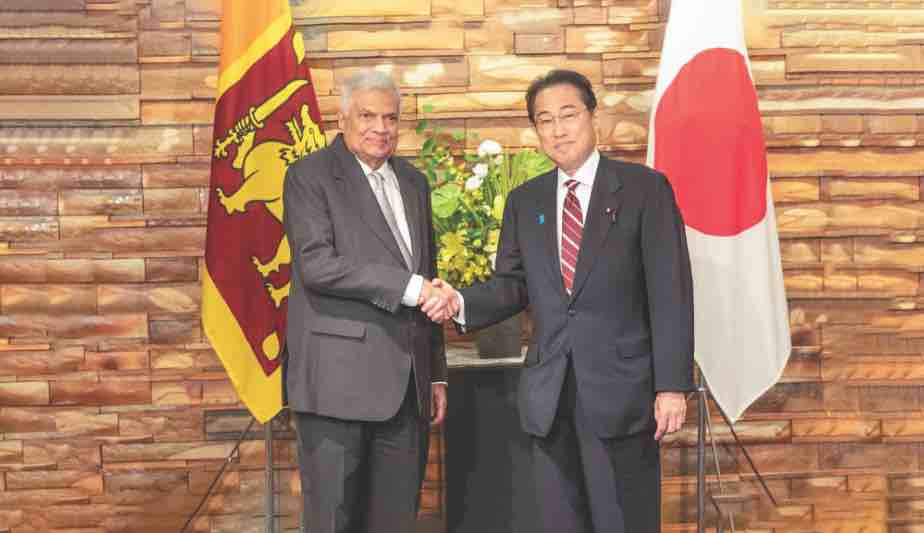
President Ranil Wickremesinghe with Japanese Prime Minister Fumio Kishida.
Sri Lanka’s economic recovery from bankruptcy is a compelling narrative of strategic international diplomacy, economic reforms, and resilient leadership. Under President Ranil Wickremesinghe, the nation embarked on a transformative journey that involved key partnerships with the International Monetary Fund (IMF), The Paris Club, and the Exim Bank of China. His extensive overseas tours to meet world leaders and participation in international forums were instrumental in securing the necessary support and forging strategic alliances.
The Economic Crisis
By 2022, Sri Lanka faced an unprecedented economic crisis characterized by severe foreign exchange shortages, soaring inflation, and an unsustainable debt burden. The COVID-19 pandemic exacerbated these issues, leading to a sharp decline in tourism, one of Sri Lanka’s main revenue streams. This economic turmoil culminated in the country defaulting on its debt in May 2022, plunging it into bankruptcy.
Strategic Engagement with the IMF
Recognizing the need for a structured recovery plan, President Wickremesinghe initiated negotiations with the IMF. The IMF’s involvement was crucial for several reasons:
1. Financial Assistance: In March 2023, the IMF approved a USD 3 billion Extended Fund Facility (EFF) to support Sri Lanka’s economic stabilization and reform agenda. This injection of funds was critical in stabilizing the country’s foreign exchange reserves.
2. Structural Reforms: The IMF’s program required Sri Lanka to implement significant economic reforms. These included restructuring state-owned enterprises, improving fiscal discipline, enhancing tax revenues, and ensuring transparency in public financial management. These reforms aimed at creating a sustainable economic framework for long-term growth.
3. Debt Restructuring: A key component of the IMF program was the restructuring of Sri Lanka’s external debt. The IMF facilitated negotiations with major creditors to achieve a consensus on debt relief and restructuring terms.
Collaboration with The Paris Club
The Paris Club, an informal group of creditor nations, played a pivotal role in Sri Lanka’s debt restructuring process. President Wickremesinghe’s government engaged with The Paris Club to negotiate debt relief terms that would be acceptable to all parties involved. Key actions included:
1. Debt Moratorium: The Paris Club agreed to a temporary debt moratorium, allowing Sri Lanka to defer debt repayments. This provided immediate relief and freed up resources for essential public spending.
2. Debt Restructuring Agreement: In a landmark agreement, The Paris Club and Sri Lanka negotiated terms for restructuring approximately USD 12 billion of debt. This included extended repayment periods, reduced interest rates, and in some cases, partial debt write-offs. These measures significantly reduced the country’s debt burden and improved fiscal sustainability.
Negotiations with Exim Bank of China
China, being one of Sri Lanka’s largest creditors, was a crucial player in the debt restructuring process. The Exim Bank of China, representing Chinese interests, engaged in extensive negotiations with the Sri Lankan government. The outcomes were:
1. Bilateral Agreements: The Exim Bank of China agreed to reschedule a significant portion of Sri Lanka’s debt. This involved extending repayment periods and lowering interest rates, which alleviated immediate financial pressures on the Sri Lankan government.
2. Investment Commitments: In addition to debt relief, China committed to continued investment in Sri Lanka’s infrastructure projects. These investments were essential for stimulating economic growth and creating employment opportunities.
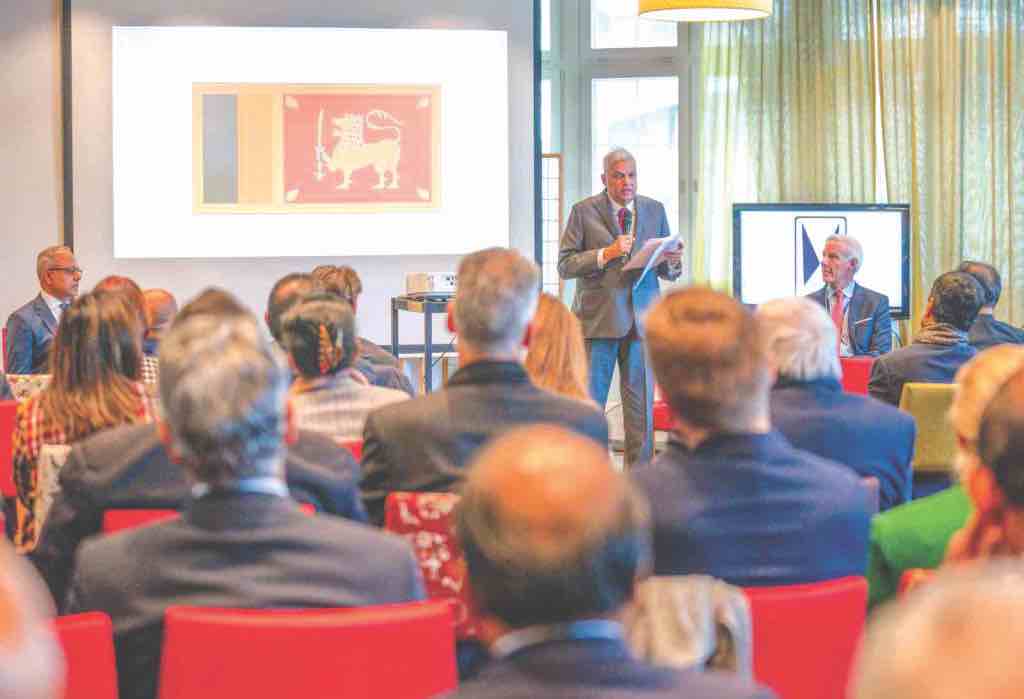
President Ranil Wickremesinghe highlighted the significant strides in Sri Lanka’s economic recovery at the Business Roundtable in Switzerland.
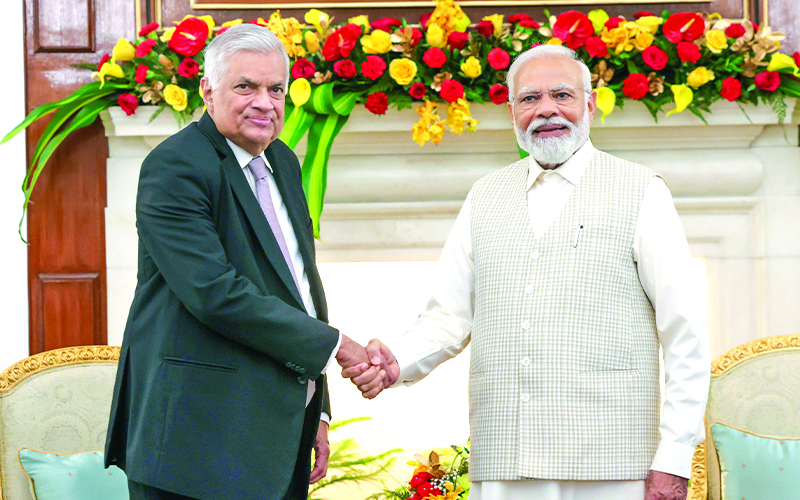
President Ranil Wickremesinghe with Indian Prime Minister Narendra Modi during his visit to India.
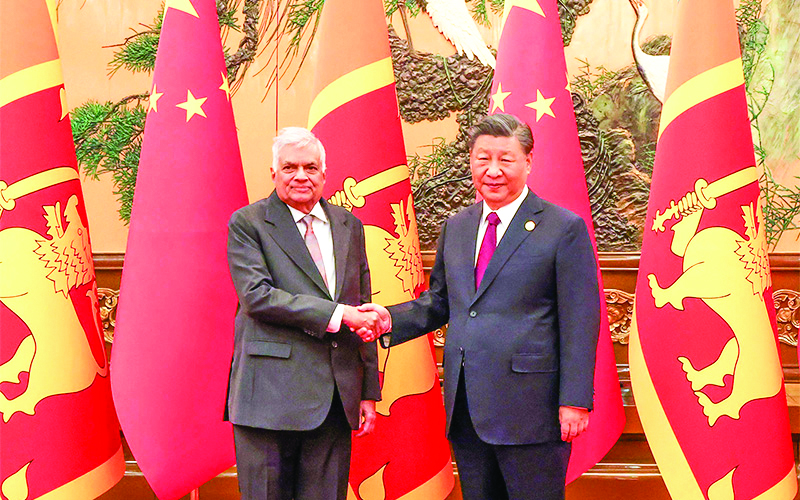
President Ranil Wickremesinghe and Chinese President Xi Jinping in China during the Third Belt and Road Forum for International Cooperation.
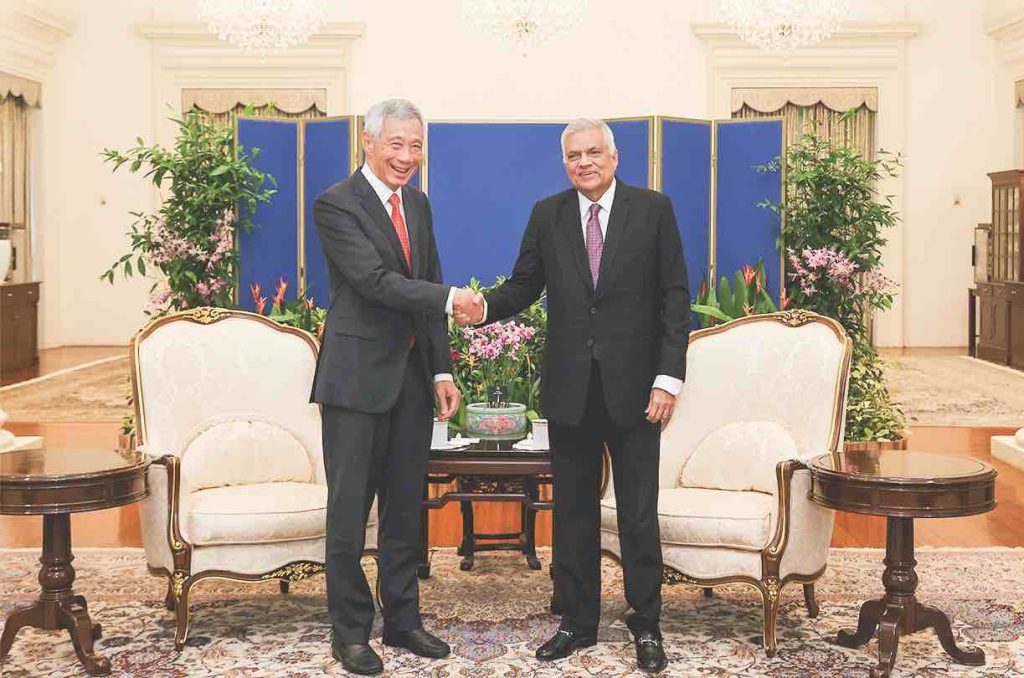
Singapore Prime Minister Lee Hsien Loong and President Ranil Wickremesinghe discussed ways to further strengthen and expand bilateral cooperation, including in trade and food security.
Overseas Tours and International Forums
President Wickremesinghe’s active diplomacy included numerous overseas tours and participation in international forums, which were crucial in garnering international support and building alliances. Key highlights of these engagements include:
1. Meeting with World Leaders: President Wickremesinghe met with leaders from major economies, including the United States, European Union, India, Japan, and China. These meetings focused on securing financial aid, investment, and support for Sri Lanka’s economic recovery plan. Notable visits included:
– United States: Meetings with U.S. President and Treasury officials to discuss economic support and bilateral cooperation.
– India: Strengthening ties with Indian Prime Minister Narendra Modi, resulting in significant bilateral assistance and investments.
– China: Securing further financial support and investment commitments through high-level meetings with Chinese President Xi Jinping.
2. Participation in International Forums: President Ranil Wickremesinghe’s participation in forums such as the World Economic Forum (WEF), G20 Summit, and United Nations General Assembly was instrumental in highlighting Sri Lanka’s economic challenges and seeking global support. President Ranil Wickremesinghe’s speeches emphasized the need for a coordinated international response to aid Sri Lanka’s recovery.
3. Regional Cooperation: Engaging with regional bodies like the South Asian Association for Regional Cooperation (SAARC) and the Bay of Bengal Initiative for Multi-Sectoral Technical and Economic Cooperation (BIMSTEC) to strengthen regional economic ties and cooperation.
Domestic Reforms and Economic Recovery
President Ranil Wickremesinghe’s administration implemented several domestic reforms to complement international assistance.
These included:
1. Tax Reforms: The government introduced progressive tax policies to increase revenue. This included expanding the tax base and improving tax collection mechanisms.
2. Public Sector Efficiency: Efforts were made to enhance the efficiency of state-owned enterprises through privatization and restructuring. This aimed to reduce the fiscal burden and improve service delivery.
3. Social Safety Nets: Recognizing the social impact of economic reforms, the government strengthened social safety nets to protect vulnerable populations. This included targeted subsidies and welfare programs.
The Road to Recovery
By 2024, these combined efforts began to bear fruit. Sri Lanka’s economy showed signs of stabilization, with improved foreign exchange reserves, reduced inflation, as well as a more manageable debt profile. Key indicators of recovery included:
1. GDP Growth: The economy returned to a positive growth trajectory, driven by revived tourism, increased exports, and foreign investment.
2. Debt Sustainability: The restructuring agreements with international creditors significantly reduced the debt servicing burden, creating fiscal space for development spending.
3. Investor Confidence: Improved macroeconomic stability and transparency restored investor confidence, leading to increased foreign direct investment (FDI).
Conclusion
President Ranil Wickremesinghe’s leadership in steering Sri Lanka out of bankruptcy is a testament to effective diplomacy, strategic economic reforms, and resilient governance. Through collaborative efforts with the IMF, The Paris Club, and Exim Bank of China, along with proactive engagement with world leaders and participation in international forums, Sri Lanka managed to navigate one of the most challenging economic crises in its history, setting a foundation for sustainable growth and development.
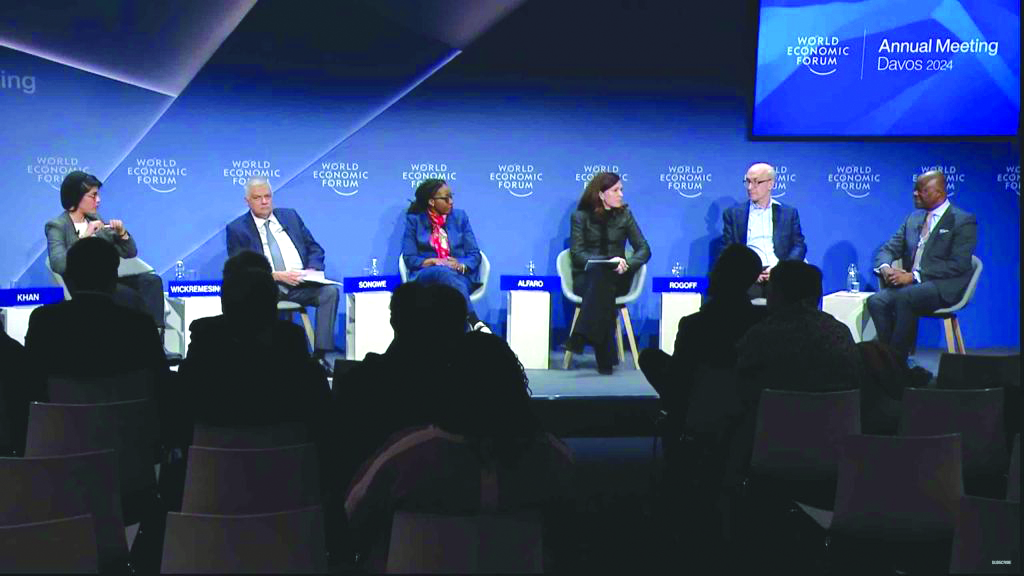
Moderator Mahin Khan, President Ranil Wickremesinghe; Vera Songwe, Founder and Chair of Liquidity & Sustainability Facility; Professor Laura Alfaro of the Harvard Business School; Professor Kenneth Rogoff of Harvard University and Wale Edun, Minister of Finance of Nigeria at the World Economic Forum (WEF).
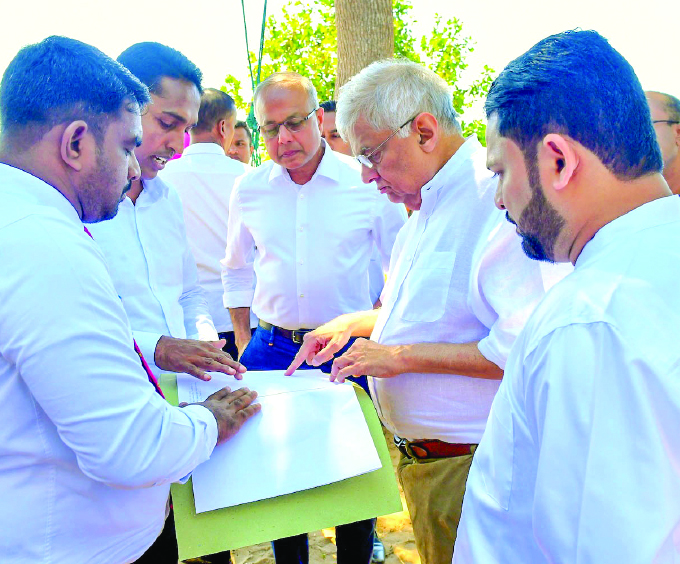
President Ranil Wickremesinghe engaged in discussions with Sagala Ratnayake, Senior Advisor to President on National Security and Chief of the Presidential Staff; W.D. Weerasinghe, MP andS. M. M. Muszhaaraff, MP to implement solutions to the ongoing problems in Arugambay.





